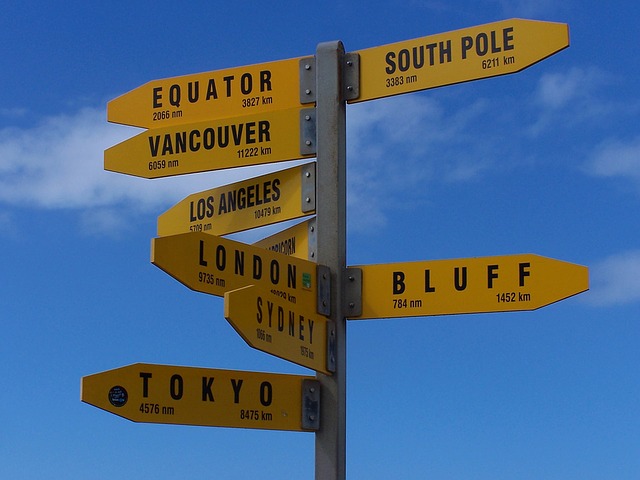Вокруг да около: Expressing Proximity In Russian Posted by Maria on Sep 15, 2016 in language
Let us talk about ways of expressing proximity in Russian. There are a few of them; however, not all of them are interchangeable.
Рядом
Рядом + с + object in the instrumental case means “next to something.” Рядом can also be used on its own to mean “nearby.”
- Рядом с нашей школой был парк (There was a park next to our school).
- Был поздний вечер, и никого не было рядом (It was late at night, and there was no one nearby).
Около
Около is similar to рядом in meaning — it means “next to” — but it has to be followed by an object in the genitive case. In other words, it cannot be used as a free-standing adverb.
- Мы припарковались около входа (We parked close to the entrance).
Недалеко
Недалеко (“not far”) can be used either on its own or followed by от + genitive.
- Здесь недалеко есть магазин одежды (There’s a clothing store/shop in this area).
- Новый музей будет построен недалеко от древних пирамид (The new museum will be built not far from the ancient pyramids). [Пестрый мир (2003) // «Марийская правда» (Йошкар-Ола), 2003.01.18]
A similar word is неподалёку, which can also be used either independently or followed by от + genitive.
- Неподалёку от центра города располагался торговый центр (A shopping mall was close to the town center).
- Судя по доносившейся музыке, концертный зал был неподалёку (Judging by the sounds of music, the concert hall was nearby).
Близко
Another synonym for недалеко is близко (“close to”). It, too, can be used on its own or followed by от + object in the genitive case.
- Она сидела в третьем или четвёртом ряду, совсем близко от сцены (She sat in the third or fourth row, very close to the stage). [Фазиль Искандер. Мученики сцены (1989)]
- После еды ей захотелось спать, хотя стреляли совсем близко (After the meal, she felt sleepy although the shooting was very close by). [Василий Гроссман. Жизнь и судьба, ч. 1 (1960)]
Note that близко can also be followed by к + dative, with a similar meaning to близко от, or до + genitive, usually to talk about reaching some place.
- Меня удивило, что они устроили свой лагерь так близко к океану (I was surprised they set up camp so close to the ocean). [Виталий Губарев. Трое на острове (1950-1960)]
- Кроме того, от Москвы так близко до Петербурга… (Besides, St. Petersburg is only a short trip away from Moscow…) [В. Я. Брюсов. Моцарт (1915)]
A synonym for близко is поблизости, used alone or with от + genitive.
- Никого поблизости не было, никто им не встретился (The was no one around, and they didn’t run into anyone). [Василь Быков. Болото (2001)]
- Краем глаза я старался увидеть, нет ли кого поблизости от машины (I was trying to see out of the corner of my eye if there was anyone close to the car). [Андрей Геласимов. Ты можешь (2001)]
У
Finally, у + genitive can be used to talk about proximity. You may recognize this construction from talking about having something (У нас есть собака – We have a dog) or talking about someone’s place (Летом дети у бабушки – The children are at their grandmother’s in the summer). It can also be used to say “close to something, around something.”
- Мореплаватели уже знали: если следовать через океан на запад, окажешься у берегов американского материка (Seafarers already knew: if you sail across the ocean due west, you will find yourself at the shores of the American continent). [Олег Тихомиров. Подвиг Магеллана // «Мурзилка», 2002]

Build vocabulary, practice pronunciation, and more with Transparent Language Online. Available anytime, anywhere, on any device.







Comments:
Ed Porter:
Excellent mini lessons!
Thank you so much!
Maria:
@Ed Porter Thank you, Ed. As always, we have more in store.
can:
Privet Maria. Thank you for great work. you wondrously explaining each rule and word. Could you please write a post about “import &export terms” in russian. Or could you please refer me a website about trade terms
Maria:
@can Thank you, Can. Here are some links for business Russian: https://blogs.transparent.com/russian/top-business-concepts-in-russian/ and https://blogs.transparent.com/russian/business-trip-to-russia-vocabulary-and-tips/. I would also recommend opening the Wikipedia page for the term you are interested in and following the link to the Russian page. Even if you can’t read the page, the title will help you find the equivalent term.